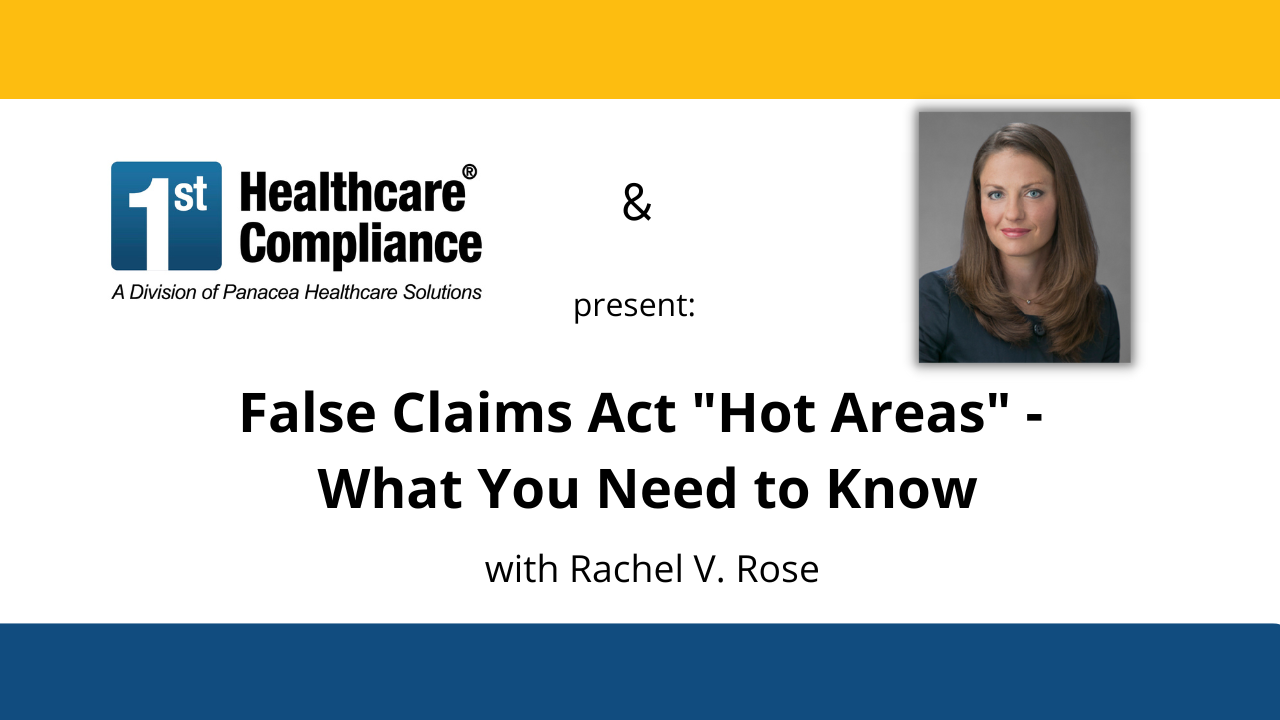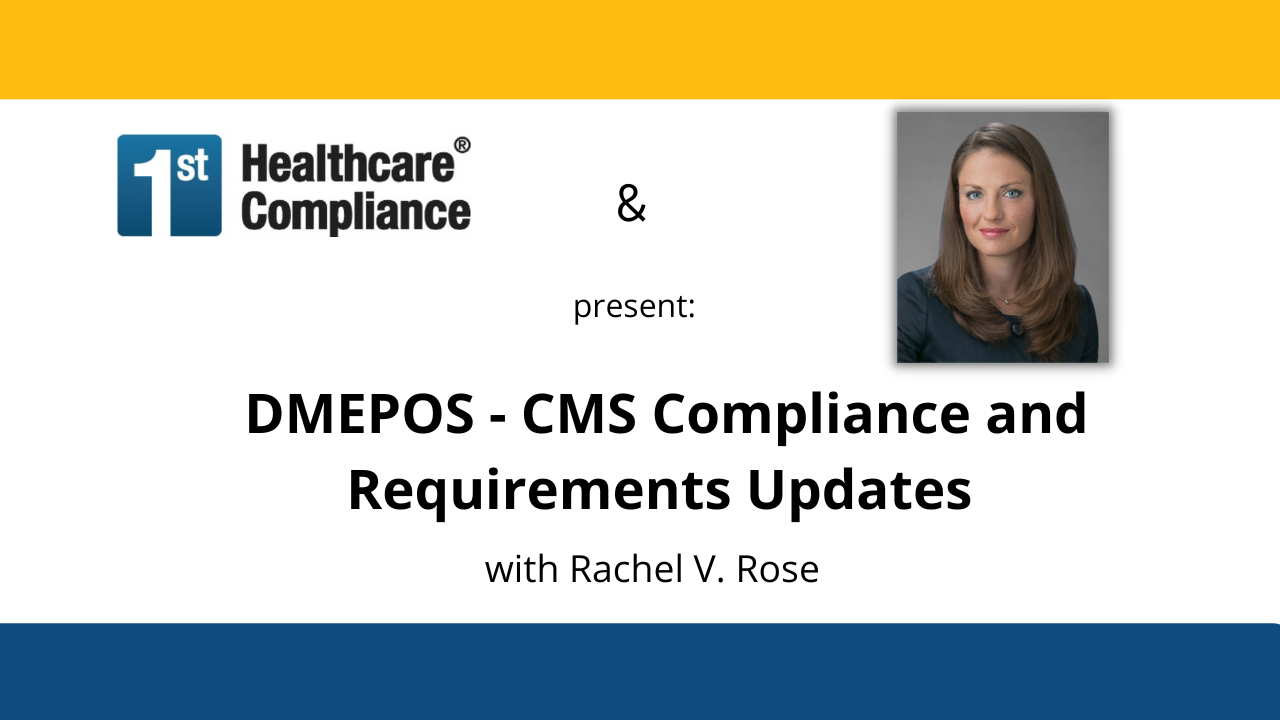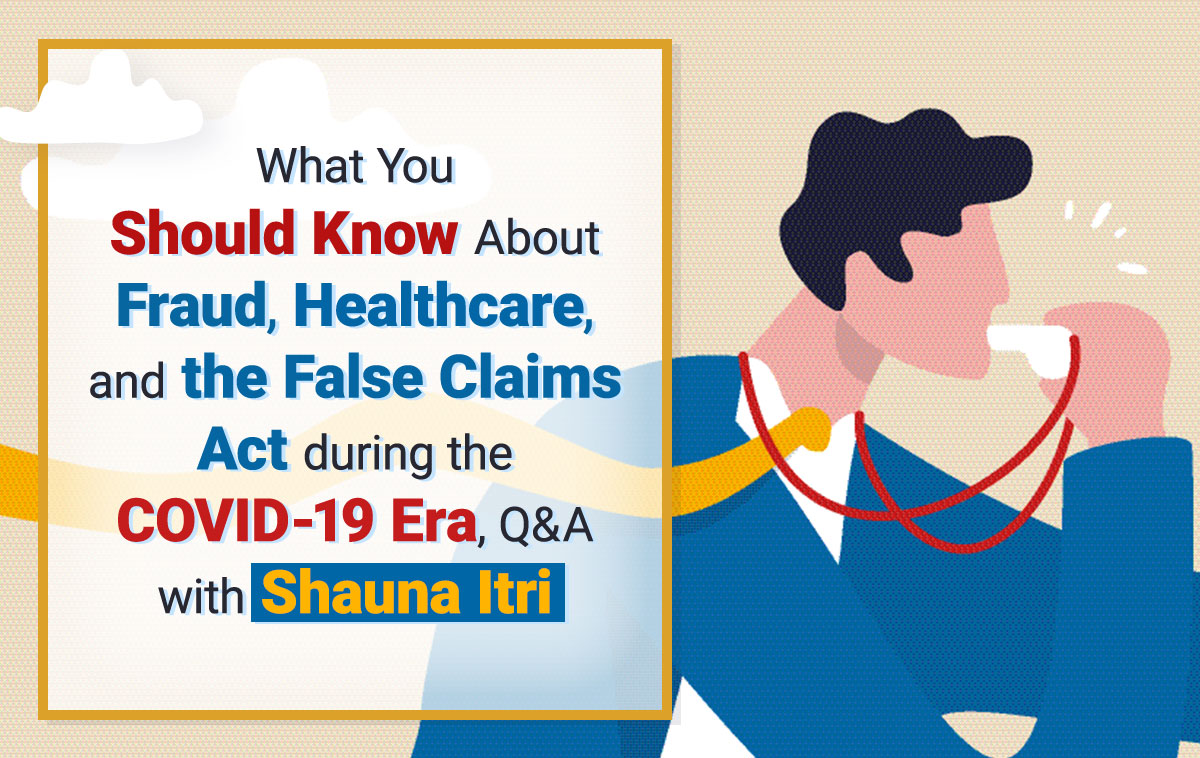
Unlock the power of employee hotlines: How to create a culture of compliance, transparency, and accountability in healthcare.
Discover the potential of employee hotlines in fostering a culture of compliance, transparency, and accountability within healthcare organizations. Our latest blog delves into the essential questions surrounding employee hotlines, discussing their significance, benefits, and best practices for successful implementation.

False Claims Act “Hot Areas” – What Counsel and Compliance Officers Need to Know
Expert presenter, Rachel V. Rose, JD, MBA, principal with Rachel V. Rose – Attorney at Law, P.L.L.C., Houston, TX guides us through current trends and tips. With its roots stemming back to 1863, the False Claims Act continues to be the U.S. Department of Justice's primary enforcement tool for returning money to the Federal Treasury. It is also considered one of five fundamental fraud, waste, and abuse laws, which potentially impact a provider every time a claim is submitted to Medicare, Medicaid, and other government programs because of the attestation language. The purpose of this webinar is to provide a synopsis of the False Claims Act and the current landscape in relation to coverage determinations and the federal Anti-Kickback Statute.

DMEPOS – CMS Compliance and Requirements Updates
Rachel V. Rose, JD, MBA, principal with Rachel V. Rose – Attorney at Law, P.L.L.C., Houston, TX presents this very timely subject for us. Durable medical equipment, prosthetics, orthotics and supplies (DMEPOS) includes an "entity or individual, including a physician or a Part A provider, which sells or rents Part B covered items to Medicare beneficiaries." There are special payment rules associated with DMEPOS. DMEPOS products have to meet quality standards, DMEPOS suppliers need to be accepted by Medicare to participate (similar to providers), and are subject to fraud, waste, and abuse laws. The purpose of this webinar to provide an overview of participation and quality requirements, relay the latest compliance and requirements updates, and address False Claims Act cases involving DMEPOS companies.

What You Should Know About Fraud, Healthcare, and the False Claims Act during the COVID-19 Era, Q&A with Shauna Itri
Shauna Itri, Partner at Seeger Weiss LLP recently presented the webinar “Fraud, Healthcare, COVID-19, and the False Claims Act.” Shauna returned to answer many commonly asked questions from the webinar.
